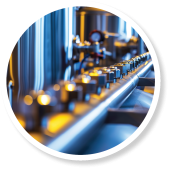https://doi.org/10.15255/KUI.2007.037
Published: Kem. Ind. 57 (4) (2008) 175–188
Paper reference number: KUI-37/2007
Paper type: Review
Download paper:  PDF
PDF

Croatian Analytical Terminology
M. Kaštelan-Macan
Abstract
Results of analytical research are necessary in all human activities. They are inevitable in making decisions in the environmental chemistry, agriculture, forestry, veterinary medicine, pharmaceutical industry, and biochemistry. Without analytical measurements the quality of materials and products cannot be assessed, so that analytical chemistry is an essential part of technical sciences and disciplines. The language of Croatian science, and analytical chemistry within it, was one of the goals of our predecessors. Due to the political situation, they did not succeed entirely, but for the scientists in independent Croatia this is a duty, because language is one of the most important features of the Croatian identity. The awareness of the need to introduce Croatian terminology was systematically developed in the second half of the 19th century, along with the founding of scientific societies and the wish of scientists to write their scientific works in Croatian, so that the results of their research may be applied in economy. Many authors of textbooks from the 19th and the first half of the 20th century contributed to Croatian analytical terminology (F. Rački, B. Šulek, P. Žulić, G. Pexidr, J. Domac, G. Janeček , F. Bubanović, V. Njegovan and others). M. Deželić published the first systematic chemical terminology in 1940, adjusted to the IUPAC recommendations. In the second half of 20th century textbooks in classic analytical chemistry were written by V. Marjanović- Krajovan, M. Gyiketta-Ogrizek, S. Žilić and others. I. Filipović wrote the General and Inorganic Chemistry textbook and the Laboratory Handbook (in collaboration with P. Sabioncello) and contributed greatly to establishing the terminology in instrumental analytical methods. The source of Croatian nomenclature in modern analytical chemistry today are translated textbooks by Skoog, West and Holler, as well as by Günnzler i Gremlich, and original textbooks by S. Turina, Z. Šoljić, I. Eškinja, M. Kaštelan-Macan, I. Piljac. Š. Cerjan-Stefanović and others translated Chromatographic nomenclature (IUPAC Compendium of Analytical Nomenclature). The related area is covered by books of V. Grdinić and F. Plavšić. During the project Croatian nomenclature of analytical chemistry there shall be an analysis of dictionaries, textbooks, handbooks, professional and scientific monographs and articles, official governmental and economic publications, regulations and instructions. The Compendium of Analytical Nomenclature is expected to have been translated and the translation mostly adjusted to the Croatian language standard. EUROLAB and EURACHEM documents related to quality assurance in analytical laboratories, especially in research and development have not yet been included in the Compendium, and due to the globalization of the information and service market, such documents need to be adjusted to the Croatian language standard in collaboration with consultants from the Institute for Croatian Language and Lingiustics. The terms shall be sorted according to the analytical process from sampling to final information. It is expected that the project’s results shall be adopted by the Croatian scientific and professional community, so as to raise the awareness of the necessity of using Croatian terms in everyday professional communication and particularly in scientific and educational work. The Croatian language is rich enough for all analytical terms to be translated appropriately. This shall complete the work our predecessors began several times. We face a great challenge of contributing to the creation of the Croatian scientific terminology and believe we shall succeed.

This work is licensed under a Creative Commons Attribution 4.0 International License
Keywords
development of chemical terminology in Croatia, Croatian analytical terminology, recommendations for formation of terms, preparation of a terminological dictionary









